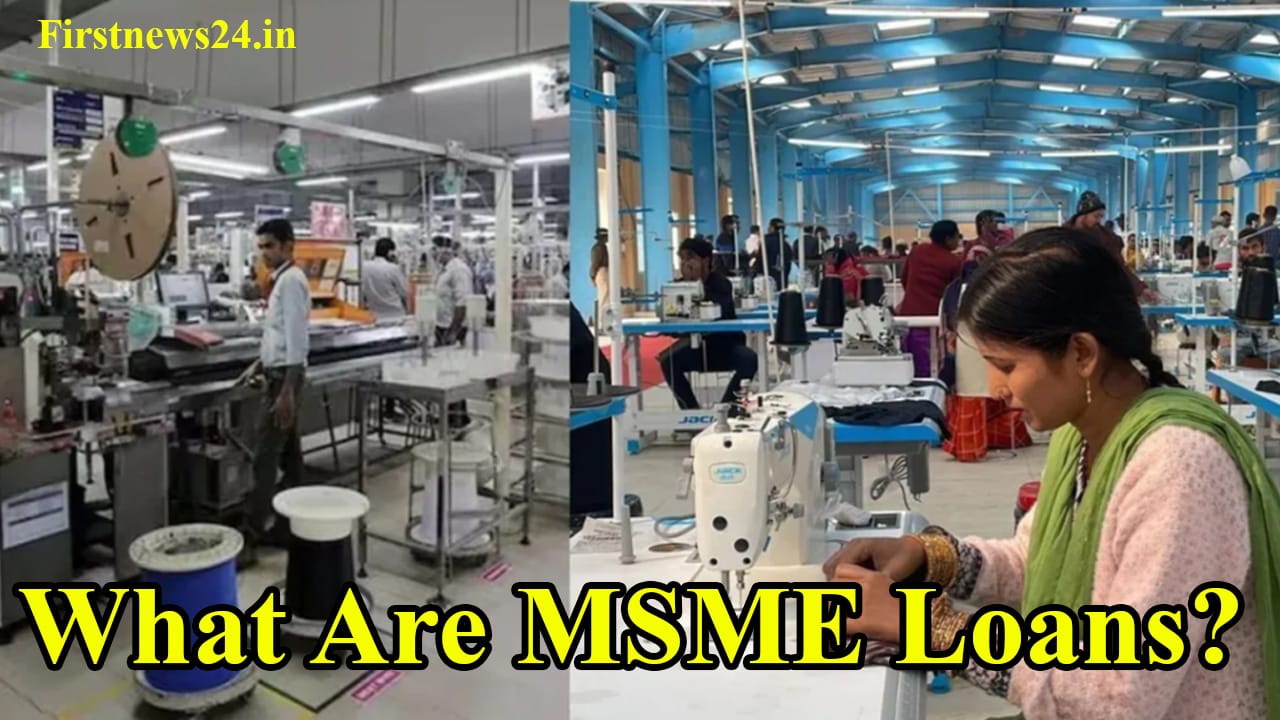For countless small businesses across India, financial stability and growth often hinge on timely access to capital. That’s where MSME loans step in—serving as a vital financial lifeline that helps enterprises scale operations, manage cash flow, and invest in growth. Whether you’re just starting out or looking to expand your business, understanding the different types of MSME loans, their benefits, and how to apply can make a big difference in your entrepreneurial journey.
What Are MSME Loans?
MSME loans—short for Micro, Small, and Medium Enterprise loans—are specifically tailored financial products aimed at supporting the operational and developmental needs of small-scale businesses. These loans are designed to help entrepreneurs fund their business expansion, cover working capital requirements, and enhance productivity.
By providing accessible financial assistance, MSME loans play a key role in boosting innovation, encouraging entrepreneurship, and strengthening the overall economic fabric of the country. As per Bank of Baroda and other leading institutions, these loans help eliminate funding bottlenecks that often restrict growth, making businesses more resilient and competitive.
Types of MSME Loans Available
Different businesses have different needs—and MSME loan offerings reflect this diversity. Here’s a breakdown of the major types available:
1. Term Loans
Ideal for long-term investments such as purchasing machinery, expanding premises, or other capital-intensive upgrades. These loans typically come with a fixed repayment schedule and interest rate.
2. Working Capital Loans
These short-term loans help businesses manage everyday operational expenses such as inventory purchases, employee salaries, utility bills, and rent.
3. Equipment Financing
Tailored specifically for buying new machinery or upgrading existing equipment, this option ensures smoother production cycles and higher efficiency.
4. Business Credit Cards
A flexible credit line that allows entrepreneurs to handle routine business expenses with ease, offering better cash flow management and reward benefits.
5. Overdraft Facility
This allows businesses to withdraw funds beyond their available account balance—up to a pre-approved limit—helping them meet urgent or unforeseen expenses.
Key Documents Required for MSME Loan Application
Applying for an MSME loan is a structured process that requires the submission of certain essential documents. Here’s what you typically need:
-
Udyam Registration Certificate (URC): Proof that your enterprise falls under the MSME category.
-
Business Registration Documents: Includes GST registration, incorporation certificate, and other documents validating the legal identity of your business.
-
Financial Statements: Balance sheets, profit and loss statements, and cash flow reports that showcase your financial health.
-
GST Returns: Depending on the loan type and lender’s criteria, recent GST filings may be necessary.
-
KYC Documents: PAN card, Aadhaar card, and other identification documents for proprietors, partners, or directors.
-
Business Plan & Repayment Strategy: A clear plan outlining how the funds will be used, expected revenue, and loan repayment strategy to demonstrate financial viability.
Why MSME Loans Matter
In a competitive market, timely access to credit can be the difference between growth and stagnation. MSME loans empower small business owners by easing liquidity constraints, encouraging innovation, and enabling strategic investments.
With multiple government schemes and simplified procedures now in place, it has never been more practical—or necessary—for entrepreneurs to explore these financial tools. Whether you’re eyeing expansion, upgrading your technology, or simply keeping daily operations smooth, MSME loans offer a foundation of financial support tailored to your business goals.
